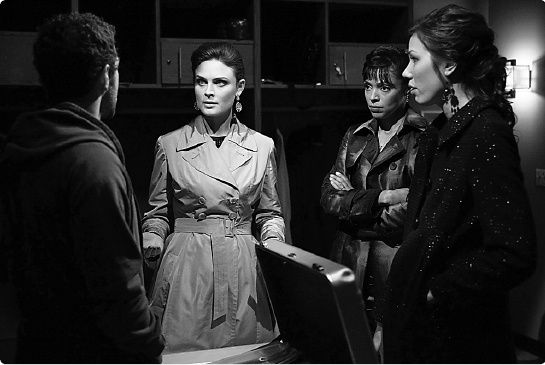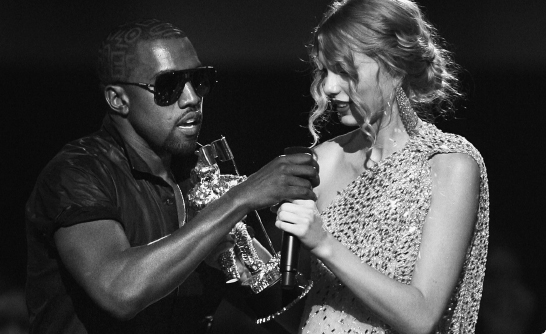Competent Communication Is Appropriate and Effective
Competent Communication Is Appropriate and Effective
Page 15
The fictional doctor Temperance Brennan on the television show Bones believes in communicating clearly, without nuance, sarcasm, or self-censorship. Her commitment to absolute scientific objectivity means that she will describe a sexual encounter with the same precision that she might describe a body she is examining and with the same detached language that someone else might use to describe a block of wood. Her communication, though clear, is largely inappropriate. It is also ineffective because, although meant to inform her colleagues with as little ambiguity as possible, it tends to amuse or embarrass them instead.

If you’ve ever laughed or cringed at an inappropriate outburst coming from someone else, you already understand that for communication to be competent it needs to be both effective and appropriate. You would not speak to your grandmother the same way you talk to your friends; nor would a lawyer ask her husband to complete a task the same way she would ask her office receptionist. Competent, successful communicators adjust their behavior to suit particular individuals and situations.
Ethics and You
What is the difference between inappropriate communication and unethical communication? Can you think of examples of each you’ve encountered in your own life?
Appropriate Behavior. When Congressman Joe Wilson (R-S.C.) shouted, “You lie!” during the 2009 State of the Union address, few people were amused. Although many Americans may have been dissatisfied with President Barack Obama’s policies, and most Americans cherish their right to free speech, Wilson’s outburst was widely regarded as inappropriate. Even Senator John McCain, Wilson’s fellow Republican from Arizona, called the outburst “totally disrespectful” and maintained that Wilson “should apologize immediately” (Reaction, 2009).
Communication is appropriate when it meets the demands of the situation as well as the expectations of others present. In almost all situations, cultural norms and rules set the standards for expectations. Had Wilson called the president a liar in a newspaper interview or even during debate on the House floor, the incident would have received less press. But the State of the Union is a nationally televised address and a very formal affair. During the address, members of Congress traditionally defer to a code of etiquette that demands respect for the presidency and all that it represents, regardless of who is in office at the time. Wilson’s outburst was considered inappropriate because of the particular setting in which he said it.
THINGS TO TRY
Describe two communication situations, one in which the communication was appropriate but not effective and one in which the communication was effective but not very appropriate. Analyze these situations, considering the situational and relational contexts involved.

Cultural norms affect individual behaviors in a similar way. For example, research shows that women tend to feel more comfortable expressing emotional caring to one another, often outright (using words of sympathy and comforting gestures), whereas men often feel they should show caring in less open ways (Burleson, Holmstrom, & Gilstrap, 2005). Thus, when comforting their friend Joe after the loss of his partner, Eva sat and held Joe’s hand, while Dave got on the phone to help Joe manage details for the funeral.
Culture and You
Think back to the co-cultures you belong to. If these co-cultures were presented with the same situation, would they handle it differently? Do you have examples of these differences from your own experiences?
Successful communicators know what is and isn’t appropriate in a variety of situations. Moreover, they have behavioral flexibility: the ability to use a number of different behaviors depending on the situation. So although you might love to talk about politics or your grades when you’re with your friends, you might decide that these topics aren’t appropriate during Passover dinner at your aunt’s house.
Effective Behavior. Behaving appropriately is not enough in itself. Competent communication must also be effective—it must help you meet your goals. This can be challenging because it’s not always easy to know what messages will work best—and you may have more than one goal (Canary, Cody, & Smith, 1994). For example, Travis and his fiancée, Leah, are arguing over whose family they will visit at Thanksgiving. Travis has conflicting goals: he wants to see his family for the holiday, but he also wants Leah to be happy.
If you have some knowledge of your communication partner’s expectations, you can more easily determine which messages will be more effective than others. If Travis knows that Leah would like to spend Thanksgiving with her family because she wants to see her elderly grandmother, he might suggest that they spend the four-day Thanksgiving weekend with his family but the longer Christmas–New Year holiday with hers. In addition, prioritizing your goals can help you construct effective messages. If Leah knows that her grandmother is ailing, she may decide that going home for Thanksgiving is a more important goal than pleasing Travis. She can then tell him that she’s sorry to let him down but that she absolutely must return home.
Communication behavior that is effective in one setting might not be appropriate in others. For example, many students feel that their best teachers are those who are organized and logical (Kramer & Pier, 1999). But if your roommate handed you a detailed schedule of what you should do every day in your apartment during the upcoming semester, you might find this behavior annoying.